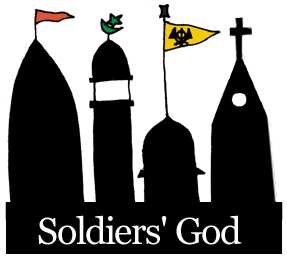Home > News > Diary
Colonel Neeraj Bali, SM

As a serving army officer, I never stop marvelling at the gullibility of our countrymen to be provoked with alacrity into virulence in the name of religion. I have never heard the word 'secular' during all my service -- and yet, the simple things that are done simply in the army make it appear like an island of sanity in a sea of hatred.
In the army, each officer identifies with the religion of his troops. In regiments where the soldiers are from more than one religion, the officers -- and indeed all jawans – attend the weekly religious prayers of all the faiths. How many times have I trooped out of the battalion mandir and, having worn my shoes, entered the battalion church next door? A few years ago it all became simpler -- mandirs, masjids, gurudwars and churches began to share premises all over the army. It saved us the walk.
Perhaps it is so because the army genuinely believes in two central 'truths' -- oneness of god and victory in operations. Both are so sacred we cannot nitpick and question the basics.
In fact, sometimes the army mixes up the two! On a visit to the holy cave at Amarnath a few years ago I saw a plaque mounted on the side of the hill by a battalion that had once guarded the annual Yatra. It said, 'Best wishes from -- battalion. Deployed for Operation Amarnath.'
On another instance, I remember a commanding officer ordered the battalion maulaviji to conduct the proceedings of Janamashtmi prayers because the panditji had to proceed on leave on compassionate grounds. No eyebrows were raised. It was the most rousing and best-prepared sermon on Lord Krishna I have ever had the pleasure of listening to.
On the Line of Control, a company of Khemkhani Muslim soldiers replaced a Dogra battalion. Over the next few days, the post was shelled heavily by Pakistanis, and there were a few non-fatal casualties.
One day, the junior commissioned officer of the company, Subedar Sarwar Khan walked up to the company commander Major Sharma and said, "Sahib, ever since the Dogras left, the mandir has been shut. Why don't you open it once every evening and do aarti? Why are we displeasing the gods?"
Major Sharma shamefacedly confessed he did not know all the words of the aarti. Subedar Sarwar went away and that night, huddled over the radio set under a weak lantern light, painstakingly took down the words of the aarti from the post of another battalion!
How many of us know that along the entire border with Pakistan, our troops abstain from alcohol and non-vegetarian food on all Thursdays? The reason: It is called the Peer day -- essentially a day of religious significance for the Muslims.
In 1984, after Operation Bluestar there was anguish in the Sikh community over the desecration of the holiest of their shrines. Some of this anger and hurt was visible in the army too.
I remember the first Sikh festival days after the event -- the number of army personnel of every religious denomination that thronged the regimental gurudwara of the nearest Sikh battalion was the largest I had seen. I distinctly remember each officer and soldier who put his forehead to the ground to pay obeisance appeared to linger just a wee bit longer than usual. Was I imagining this? I do not think so. There was that empathy and caring implicit in the quality of the gesture that appeared to say, "You are hurt and we all understand."
We were deployed on the Line of Control those days. Soon after the news of disaffection among a small section of Sikh troops was broadcast on the BBC, Pakistani troops deployed opposite the Sikh battalion yelled across to express their 'solidarity' with the Sikhs.
The Sikh havildar shouted back that the Pakistanis had better not harbour any wrong notions. "If you dare move towards this post, we will mow you down."
Finally, a real -- and true -- gem. Two boys of a Sikh regiment battalion were overheard discussing this a day before Christmas.
"Why are we having a holiday tomorrow?" asked Sepoy Singh.
"It is Christmas," replied the wiser Naik Singh.
"But what is Christmas?"
"Christmas," replied Naik Singh, with his eyes half shut in reverence and hands in a spontaneous prayer-clasp, "is the guruparb of the Christians."
Illustration: Uttam Ghosh